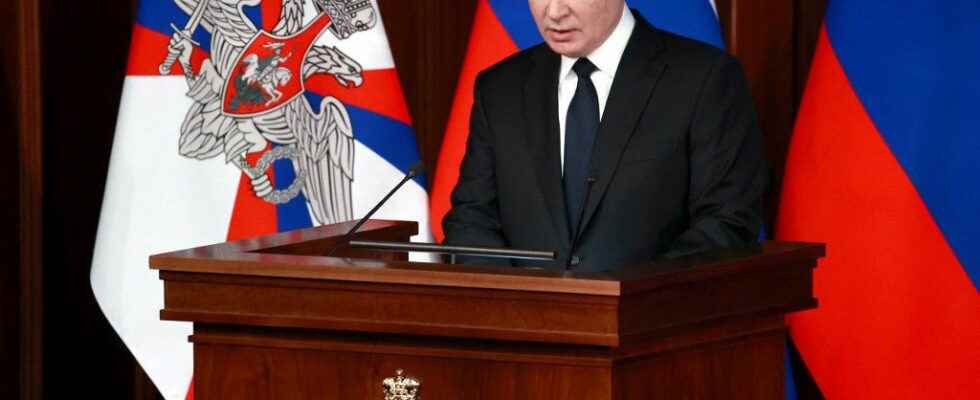The Second World War liquidated a concept that was very fashionable in the decades that preceded it: nationalism. Hitler’s pan-German hysteria, his dream of a thousand-year-old Reich have finally revealed – and discredited – the demons that this notion of nationalism carries within it. Just then did we accept to tolerate it, while fighting it, among certain groups claiming a singular identity and demanding that it result in the independence of their nation – Irish, Catalans, Basques…
The war in Ukraine is said to have brought war back to Europe. It’s actually something else that she brought back: nationalism. We thought the war in Europe impossible, but finally, Yugoslavia and the fights on the borders of Ukraine attested that it was not. What was believed to be buried, on the other hand, is bull-fronted nationalism. However, after February 2014, we gradually had to get our ears back to slogans coming back from the darkness of our continent. We had to rub our eyes when we read the historical rewrites from Moscow, the political narrative justifying the military operations, and reinventing both imperial ambition and the need for Lebensraum. Unchanged in its words, identical in its effects, we have seen the reappearance of the specter that we believed to be defunct of the Great Fatherland, the bloodthirsty harangues delivered with the good conscience that gives the certainty of fighting for the good of the fatherland, when in we deform its features, we make its face hideous, its breath stinking.
No one knows what the military outcome of this conflict will be. And whatever the outcome, no one can really guess what the diplomatic outcome will be. On the other hand, one thing is already certain, pregnant, destined to stay: nationalism in its most violent form is back, and it is here to stay. If he wins, he will be triumphant. If he is defeated, he will be revengeful. To the Russian aggression, the Ukrainians could only respond because they themselves are ardent patriots. But massacred as they are, devastated as they continue to be, they could well turn this patriotism into nationalism in turn, nourishing the desire to do battle, not to defend themselves, but to put an end to it, giving in to the temptations of territorial conquest, total war, in short: what nationalism engenders when it is angry.
Baltic countries, Hungary, Poland won over by obsidional anguish
We Europeans face the same temptation. We reacted, first of all, as Europeans, united, united, conscious of our duty. But this front itself tends to crack; and what acts, underground, for that? Nationalism, too. Yes, in many European countries there is reappearing (sometimes it didn’t take much) a keen sense of frontiers, the constant preoccupation with arming or re-arming, the silent mistrust of one’s neighbour, be it he a partner or a friend. We see the obsidional anguish welling up again which often precedes the nationalist fever. Baltic countries, Hungary, Poland: already inclined to identity singularity, here they are won over by another discourse, which engages the future; these nations become so many fortresses in our European bosom.
The biggest concern obviously comes from Germany. We would so much like to believe that the relationship with France remains reasonable and constructive. Everything must be done for this. The Franco-German summit with hugs and friendly dinners went in this direction. The solitary announcement by Chancellor Scholz, two days after his return, of the delivery of the Leopard tanks, looked like a bitter affront – questioned in Paris, he had reserved his answer: in reality, he was keeping it for Berlin. Of this disintegration, make no mistake, the dissolving agent is none other than nationalism. That a Germany paralyzed by the questioning of its fundamentals is concerned about its vital interests is perfectly legitimate; but that the service of these interests is tinged with an unabashed selfishness is worrying, because it is from this ferment that active nationalism usually rises.
The war in Ukraine does not only change the energy, economic, geopolitical and diplomatic situation. It changes minds, and brings them back to something raw, even brutal. It reactivates instincts that we had learned to be wary of. The real victory against Russia will be not to give in to it.
